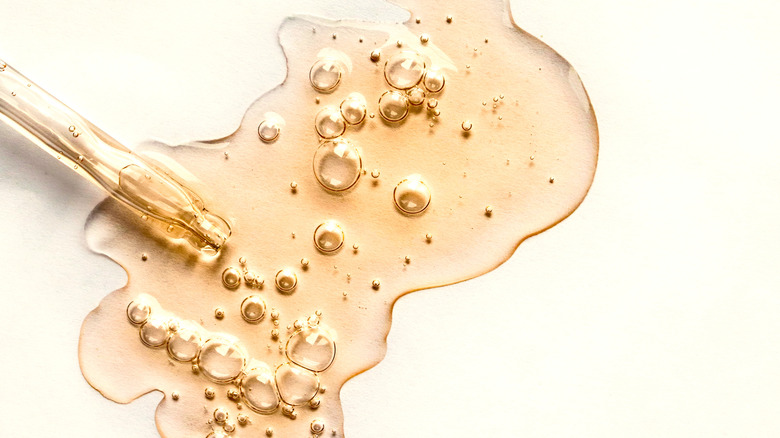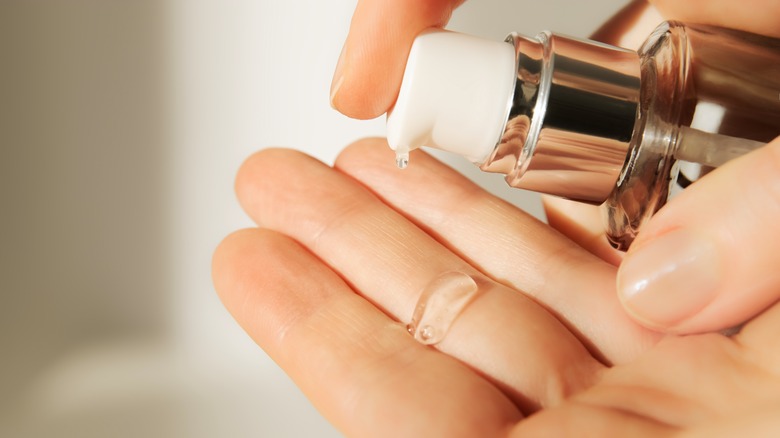How Hyaluronic Acid Can Help Your Skin Wounds Heal
Hyaluronic acid has skyrocketed in popularity in recent years, becoming a key ingredient in many skin care products. But what exactly is it? According to the Cleveland Clinic, your body naturally produces hyaluronic acid. It's most commonly found in your eyes, joints, and skin, where it acts as a lubricant to help your tissues retain moisture. In addition to keeping things hydrated, hyaluronic acid can also help these tissues stay smooth and elastic.
However, it can also be produced in a lab for commercial use by fermenting bacteria. In skin care products, hyaluronic acid draws in outside moisture to help hydrate your skin (via NBC News). "The end result is plump skin that looks great," board-certified dermatologist Dr. Barry Goldman told NBC News. Unlike other acidic skin care products, hyaluronic acid is beneficial for all skin types and is highly unlikely to cause dryness and irritation, unless the product you're using contains other harsh ingredients, like fragrances. Since hyaluronic acid is so great for your skin, can it also be used on wounds and lacerations?
Applying hyaluronic acid to wounds can speed up healing
As it turns out, hyaluronic acid can also be used to heal wounds on your skin. That's because it can help regulate inflammation, regenerate tissue, and let your body know where to form more blood vessels to repair damage (via Healthline).
Applying hyaluronic acid directly to an open wound on your skin can help reduce the size of the wound and relieve any pain and discomfort you may be experiencing. Since it has antibacterial properties, it can also help keep your wound clean and lower your risk of infection. This applies to ulcers and mouth wounds obtained after tooth surgery, as well. In fact, a 2013 study published in International Wound Journal found that applying gauze with hyaluronic acid to leg ulcers relieved pain and significantly sped up the healing process. While hyaluronic acid serums and gels can certainly help heal wounds on your skin, it's unclear whether or not oral supplements would have the same effect on wound healing, per Healthline.


